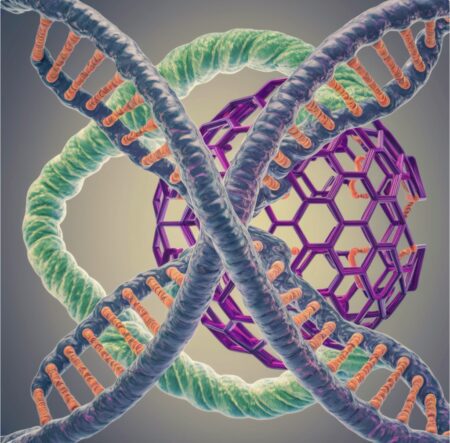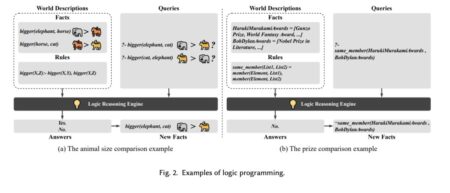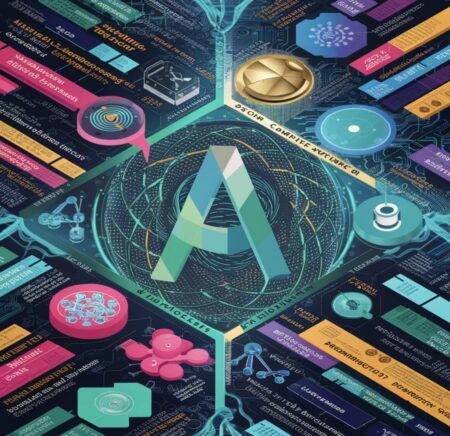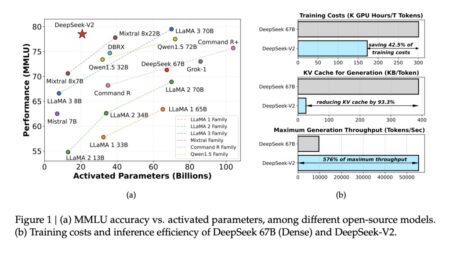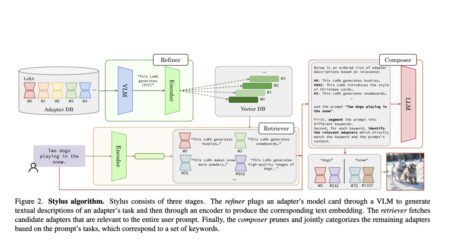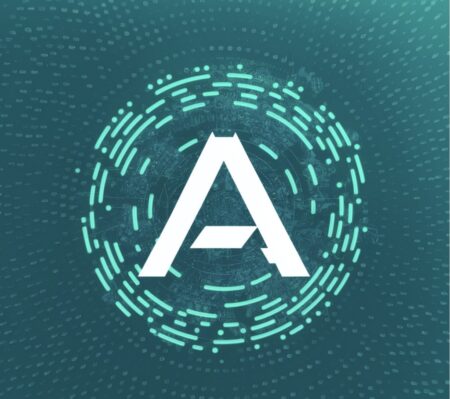The principle of closure is a fascinating visual bias and affects how we perceive elements or objects. It explains our…
Exploring how collaboration can unlock the true potential of design and create experiences that truly resonate with your users. Source:…
UI/UX design is much more than just making a website look pretty. It’s about creating a unique and pleasant experience…
Choosing colors or typography for your website? Use Realtime colors to realize your choices. Source: Read MoreÂ
Post Content Source: Read MoreÂ
Post Content Source: Read MoreÂ
Post Content Source: Read MoreÂ
Believe it or not, it is the most flexible and trending Python programming language right now. It is simple to…
Post Content Source: Read MoreÂ
Over the past decade, advancements in deep learning and artificial intelligence have driven significant strides in self-driving vehicle technology. These…
Computational biology has emerged as an indispensable discipline at the intersection of biological research & computer science, primarily focusing on…
The quest for efficient data processing techniques in machine learning and data science is paramount. These fields heavily rely on…
Among the main advancements in AI, seven areas stand out for their potential to revolutionize different sectors: neuromorphic computing, quantum…
Hebrew is considered a low-resource language in AI. It has a sophisticated root and pattern system and is a morphologically…
Language models are pivotal in advancing artificial intelligence (AI), enhancing how machines process and generate human-like text. As these models…
Adopting finetuned adapters has become a cornerstone in generative image models, facilitating customized image creation while minimizing storage requirements. This…
The rise of AI cartoonizer tools represents an intriguing convergence of technology and creativity. These tools, which use AI algorithms,…
In the contemporary landscape of technological advancements, artificial intelligence (AI) stands at the forefront, driving significant transformations across various sectors.…
I have an error in my Jenkins + Selenium integration, the Selenium Grid Version is 3.7.1 (Installed by default for the Jenkins Selenium Plugin). I’m using the last chromedriver version. When I run my test on Jenkins the I get the following errors:
org.openqa.selenium.SessionNotCreatedException: Unable to create new service: ChromeDriverService
Build info: version: ‘3.7.1’, revision: ‘8a0099a’, time: ‘2017-11-06T21:07:36.161Z’
System info: host: ‘xxxxxxx’, ip: ‘xxxxxxxx’, os.name: ‘Windows Server 2012 R2’, os.arch: ‘x86’, os.version: ‘6.3’, java.version: ‘1.8.0_66’
Driver info: driver.version: unknown
Command duration or timeout: 187 milliseconds
at sun.reflect.NativeConstructorAccessorImpl.newInstance0(Native Method)
at sun.reflect.NativeConstructorAccessorImpl.newInstance(NativeConstructorAccessorImpl.java:62)
at sun.reflect.DelegatingConstructorAccessorImpl.newInstance(DelegatingConstructorAccessorImpl.java:45)
at java.lang.reflect.Constructor.newInstance(Constructor.java:423)
at org.openqa.selenium.remote.ErrorHandler.createThrowable(ErrorHandler.java:214)
at org.openqa.selenium.remote.ErrorHandler.throwIfResponseFailed(ErrorHandler.java:166)
at org.openqa.selenium.remote.JsonWireProtocolResponse.lambda$new$0(JsonWireProtocolResponse.java:53)
at org.openqa.selenium.remote.JsonWireProtocolResponse.lambda$getResponseFunction$2(JsonWireProtocolResponse.java:91)
at org.openqa.selenium.remote.ProtocolHandshake.lambda$createSession$0(ProtocolHandshake.java:123)
at java.util.stream.ReferencePipeline$3$1.accept(ReferencePipeline.java:193)
at java.util.Spliterators$ArraySpliterator.tryAdvance(Spliterators.java:958)
at java.util.stream.ReferencePipeline.forEachWithCancel(ReferencePipeline.java:126)
at java.util.stream.AbstractPipeline.copyIntoWithCancel(AbstractPipeline.java:498)
at java.util.stream.AbstractPipeline.copyInto(AbstractPipeline.java:485)
at java.util.stream.AbstractPipeline.wrapAndCopyInto(AbstractPipeline.java:471)
at java.util.stream.FindOps$FindOp.evaluateSequential(FindOps.java:152)
at java.util.stream.AbstractPipeline.evaluate(AbstractPipeline.java:234)
at java.util.stream.ReferencePipeline.findFirst(ReferencePipeline.java:464)
at org.openqa.selenium.remote.ProtocolHandshake.createSession(ProtocolHandshake.java:126)
at org.openqa.selenium.remote.ProtocolHandshake.createSession(ProtocolHandshake.java:73)
at org.openqa.selenium.remote.HttpCommandExecutor.execute(HttpCommandExecutor.java:138)
at org.openqa.selenium.remote.RemoteWebDriver.execute(RemoteWebDriver.java:601)
at org.openqa.selenium.remote.RemoteWebDriver.startSession(RemoteWebDriver.java:219)
at org.openqa.selenium.remote.RemoteWebDriver.<init>(RemoteWebDriver.java:142)
at org.openqa.selenium.remote.RemoteWebDriver.<init>(RemoteWebDriver.java:155)
at com.xxxxxxxx.util.utilities.DriverUtils.configureDriver(DriverUtils.java:47)
at com.xxxxxxxxx.features.accederSistema.iniciarSesion.CP01IniciarSesion.openNavigatorToLogin(CP01IniciarSesion.java:52)
I am wondering if multiple thread groups can be made non-active/sleeping at the same time.
I need multiple thread groups that run infinitely, with alternating intervals times of being all active and being all asleep/non-active. This is to simulate ongoing periods of high and low/no activity. It seems there are only controllers and ‘think time’ objects inside thread groups but not across thread groups.
My test plan is rather simple in structure.
Test plan (parallel execution of all thread groups)
thread group 1 – infinite
thread group 2 – infinite


